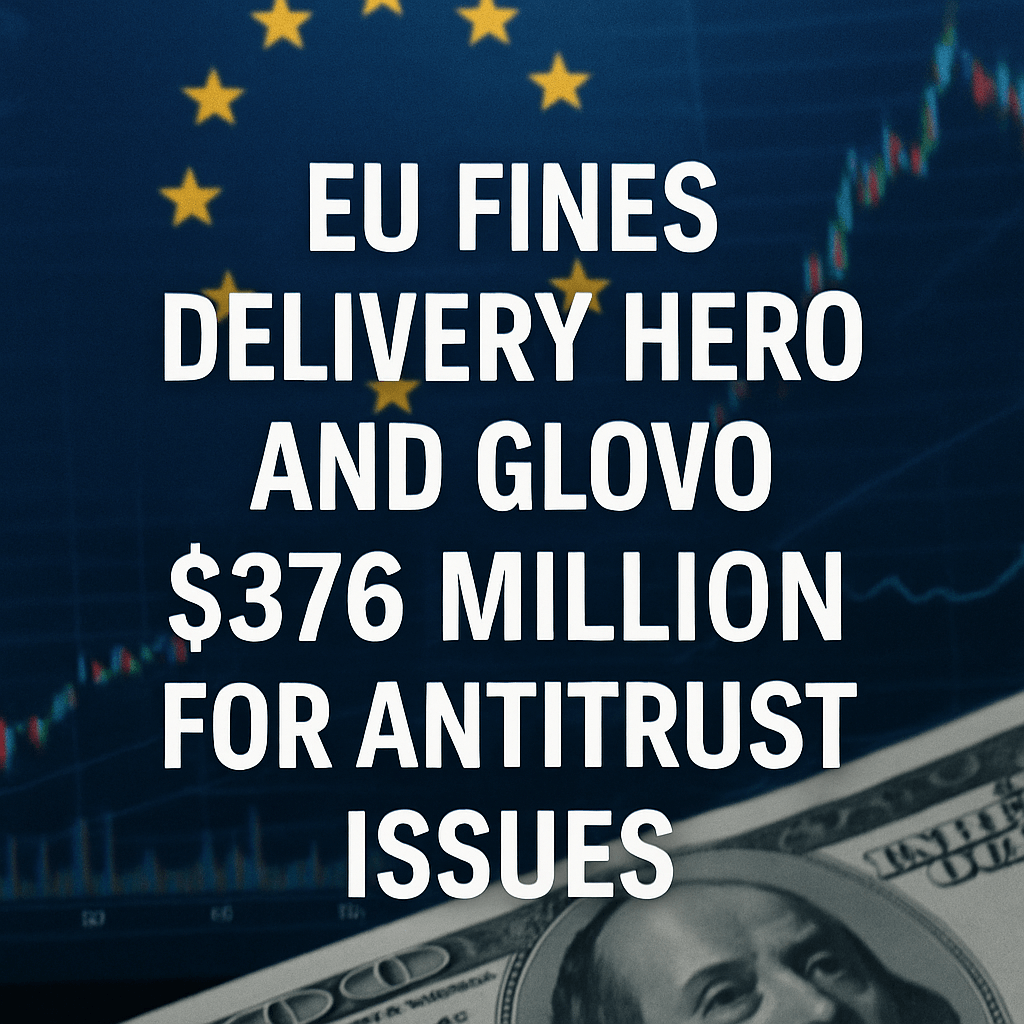EU Fines Delivery Hero and Glovo $376 Million for Antitrust Issues

The European Union (EU) has levied a significant fine against two major players in the food delivery market, German company Delivery Hero and its Spanish subsidiary Glovo, amounting to 329 million euros (approximately $376 million). This penalty comes after an investigation concluded that the pair engaged in illegal anti-competitive practices from 2018 to 2022, violating EU antitrust regulations.
Background on the Companies
Delivery Hero, headquartered in Berlin, is a prominent global gateway in the food delivery sector, operating across more than 70 countries, including 16 in the European Economic Area (EEA). Glovo, which operates in over 20 countries, was acquired by Delivery Hero in July 2022, when the latter secured a 94% stake. The European Commission’s investigation examined behaviors executed before this full acquisition, focusing on competitive practices that limited market dynamics.
The Nature of the Violations
The European Commission, which serves as the EU’s antitrust arbiter, found that Delivery Hero utilized its minority stake in Glovo to facilitate a series of anti-competitive schemes. The companies were engaged in actions that included:
- Information Exchange: Delivery Hero and Glovo exchanged sensitive pricing information through both email and WhatsApp chats. This information sharing allowed them to effectively coordinate market entry strategies, avoiding direct competition.
- No-Poach Agreements: The two firms reached agreements to refrain from poaching each other’s employees, initially limiting this pact to managers and subsequently extending it to all employees, thereby stifling workforce mobility and competition.
- Market Division: The duo agreed to divide national markets for food delivery services, agreeing not to enter each other’s established territories, which ultimately limited consumer choices and raised prices.
Implications of the Ruling
European Commissioner for Competition, Teresa Ribera, stated, “This case is significant as it marks the first time the Commission has identified a cartel within the labor market. It highlights our commitment to ensuring competitive environments for both consumers and investors.” Ribera emphasized that such collusion severely diminishes innovation and employment opportunities.
Fines and Settlements
The penalties assigned are structured such that Delivery Hero will pay 223 million euros and Glovo will pay approximately 106 million euros. Following the ruling, Delivery Hero confirmed they had set aside provisions for the fines and expressed a willingness to expedite resolution for their stakeholders. This response also reflects broader strategic interests, as EU regulators are increasingly vigilant about competition-related issues in high-growth sectors like food technology.
Market Context and Future Considerations
As food delivery services grow in demand—exacerbated by trends towards remote living and digital convenience—the implications of this ruling extend beyond immediate penalties. As regulators tighten scrutiny, companies in similar sectors must navigate the nuanced landscape of competitive legality. Failure to do so could lead to heightened fines and reputational damage.
Expert Opinions
Market analysts believe that the ramifications of this ruling could instigate a paradigm shift in how tech-enabled service providers manage competition. Maria Gonzalez, a regulatory affairs consultant, noted, “This case sets a precedent that could alter corporate collaboration frameworks, pushing firms to adopt more transparent and competitive practices.”
As the EU embodies a more hawkish stance towards anti-competitive behavior, firms like Delivery Hero and Glovo may need to recalibrate their operational strategies and explore alternative paths for growth that comply with existing regulations.
Conclusion
This landmark ruling serves as a critical reminder of the importance of maintaining competitive integrity in the rapidly evolving landscape of digital services. The EU monitoring agencies have indicated they will likely continue their vigilant oversight, potentially setting the stage for more cases in the future.